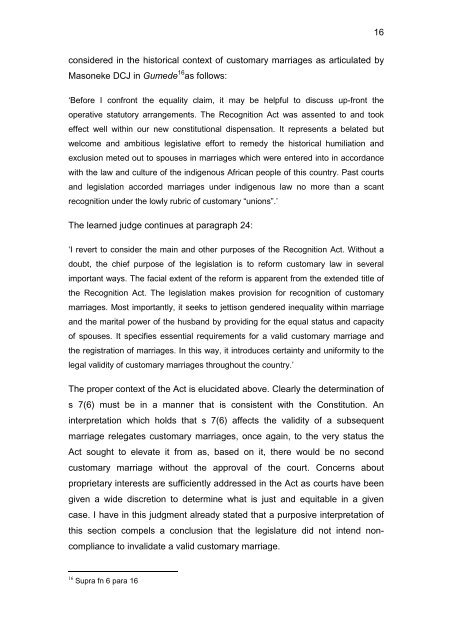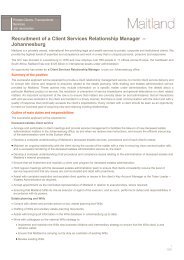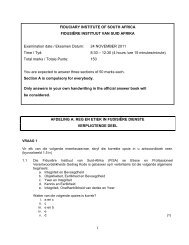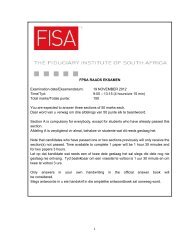Ngwenyama v Mayelane wedding after customary wedding
Ngwenyama v Mayelane wedding after customary wedding
Ngwenyama v Mayelane wedding after customary wedding
You also want an ePaper? Increase the reach of your titles
YUMPU automatically turns print PDFs into web optimized ePapers that Google loves.
16<br />
considered in the historical context of <strong>customary</strong> m arriages as articulated by<br />
Masoneke DCJ in Gumede 16 as follows:<br />
‘Before I confront the equality claim, it may be he lpful to discuss up-front the<br />
operative statutory arrangements. The Recognition A ct was assented to and took<br />
effect well within our new constitutional dispensat ion. It represents a belated but<br />
welcome and ambitious legislative effort to remedy the historical humiliation and<br />
exclusion meted out to spouses in marriages which w ere entered into in accordance<br />
with the law and culture of the indigenous African people of this country. Past courts<br />
and legislation accorded marriages under indigenous law no more than a scant<br />
recognition under the lowly rubric of <strong>customary</strong> “un ions”.’<br />
The learned judge continues at paragraph 24:<br />
‘I revert to consider the main and other purposes o f the Recognition Act. Without a<br />
doubt, the chief purpose of the legislation is to r eform <strong>customary</strong> law in several<br />
important ways. The facial extent of the reform is apparent from the extended title of<br />
the Recognition Act. The legislation makes provisio n for recognition of <strong>customary</strong><br />
marriages. Most importantly, it seeks to jettison g endered inequality within marriage<br />
and the marital power of the husband by providing f or the equal status and capacity<br />
of spouses. It specifies essential requirements for a valid <strong>customary</strong> marriage and<br />
the registration of marriages. In this way, it intr oduces certainty and uniformity to the<br />
legal validity of <strong>customary</strong> marriages throughout th e country.’<br />
The proper context of the Act is elucidated above. Clearly the determination of<br />
s 7(6) must be in a manner that is consistent with the Constitution. An<br />
interpretation which holds that s 7(6) affects the validity of a subsequent<br />
marriage relegates <strong>customary</strong> marriages, once again, to the very status the<br />
Act sought to elevate it from as, based on it, ther e would be no second<br />
<strong>customary</strong> marriage without the approval of the cour t. Concerns about<br />
proprietary interests are sufficiently addressed in the Act as courts have been<br />
given a wide discretion to determine what is just a nd equitable in a given<br />
case. I have in this judgment already stated that a purposive interpretation of<br />
this section compels a conclusion that the legislat ure did not intend noncompliance<br />
to invalidate a valid <strong>customary</strong> marriage .<br />
16 Supra fn 6 para 16



![Motsepe v Khoza customary marriage and child[3]](https://img.yumpu.com/44777240/1/184x260/motsepe-v-khoza-customary-marriage-and-child3.jpg?quality=85)


